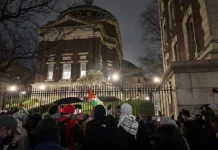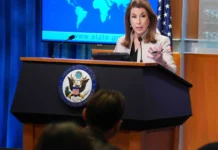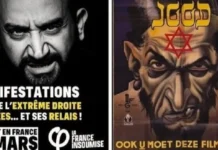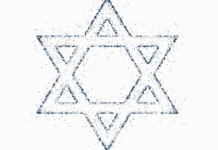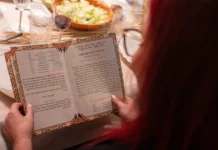Following the deeply disturbing killings of George Floyd on May 25, 2020, Breonna Taylor on March 13, Ahmaud Arbery on February 23, and countless other Black Americans throughout our history, we would like to affirm our solidarity with the victims, the survivors, and our fellow combatants in the struggle against racism. As a Yiddish organization, we condemn all kinds of violence and are committed to justice.
This week, we will be reflecting on how to support and show up for Black lives in America, and we hope that this dialogue will be ongoing. Yiddish literature and Yiddish activism have gone hand in hand throughout the 20th century, as effectively and radically in the United States as anywhere else in the Yiddish-speaking world. Though Yiddish-speaking activists across the political spectrum were sympathetic to the freedom struggle of African Americans at the beginning of the 20th century, linguistic and cultural barriers between the two groups made the prospect of genuine and committed cooperation or coalition-building often easier said than done.
During our upcoming Thursday Yiddish reading circle, we will examine one of the most intensive condemnations of anti-Black racism ever achieved in Yiddish. Yet, in spite of the author’s good intentions, we will see that unwittingly he inherits many rhetorical assumptions of contemporary white racism of his times. We hope to start a discussion about what needs to happen in today’s Yiddish circles to progress in our understanding and our anti-racist efforts. Dr. Marc Caplan will lead the discussion. This is a Yiddish event but the text is available in Engllish translation.
On Friday, June 12th, 11 a.m. PDT, join Dr. Merle Bachman’s discussion of complex position of Yiddish writers who had arrived in a society where racism, not antisemitism, was the primary oppression, and how this is reflected in their poems: poetry that speaks to us today! (in English).
We would like to express our deepest gratitude to our amazing volunteers, Kaley Elizabeth Oliver and German Bernate Obando for their restless work for the organization and helping with our Black Lives Matter events!
Please don’t forget to RSVP to info@yaaana.com. If you would like to attend multiple events, our monthly and weekly memberships are still available: https://yaaana.com/index.php/2020/05/28/memberships/
For event updates and details, please check our events calendar https://yaaana.com/events/month/ or/and our Facebook page — https://www.facebook.com/YiddishCulture/.

Donershtik, 06/04,11 a.m. PDT – undzer spetsyeler leyenkrayz
Vi azoy bashraybt Opatoshu di stsene fun a lintsheray? Dr. Marc Caplan analizirt dem tekst funem lingvistishn kukvinkl.
Link: Feel free to share this link privately but please do not post it publicly on social media.
https://us02web.zoom.us/j/81202267558?pwd=bVNhbWlNbHJYOW1STjJSYlR6YzVrQT09
Meeting ID 812-0226-7558
Meeting Password 767136
Der tekst un hintergrund: https://ingeveb.org/articles/yiddish-exceptionalism-lynching-race-and-racism-in-opatoshus-lintsherayfbclid=IwAR226CkgAh7Z0fTjsBAN2Q_aVM6uM6mIIyBMxWVYBpAsel1skC4xeYYX6EU
Cost: This event is free of charge but if you consider donating to us at https://www.paypal.me/YAAANA2020 (with a note “black lives matter”), all the proceeds will be forwarded to Black Visions Collective. You might also consider donating to them directly: https://www.blackvisionsmn.org/
Dr. Marc Caplan is a native of Louisiana and a graduate of Yale University. In 2003, he earned his Ph.D. in comparative literature from New York University. Since then he has held professorial appointments at Indiana University, Johns Hopkins University, and Yale as well as research fellowships at the University of Pennsylvania, Harvard University, the Universität Konstanz (Germany), the Center for Jewish History (New York), and the University of Michigan (Ann Arbor). In 2011, he published “How Strange the Change: Language, Temporality, and Narrative Form in Peripheral Modernisms–a comparison of Yiddish and African Literatures” (Stanford University Press).

Friday, June 12th, 11 a.m. PDT – Yiddish Poetry and Racist America: Reading and Discussion
Were you aware of the Yiddish literary response to racism in America?
When Yiddish immigrants arrived en masse in this country more than a century ago, it was during “Jim Crow” — a time of societal turmoil marked by racist violence against African Americans. Almost every Yiddish poet had something to say about the hatred they saw around them.
Link: Feel free to share this link privately but please do not post it publicly on social media.
https://us02web.zoom.us/j/85036569677?pwd=eDRZV0Rsd0NDODNrVG9TeXZMdGFWdz09
Meeting ID: 850 3656 9677
Password: 278542
Cost: This event is free of charge but if you consider donating to us at https://www.paypal.me/YAAANA2020 (with a note “black lives matter”), all the proceeds will be forwarded to the Black Lives Matter organization. You might also consider donating to them directly: https://blacklivesmatter.com/
Dr. Merle Bachman was one of the first Yiddish scholars to publish about this phenomenon in her 2008 book of literary criticism, Recovering Yiddishland: Threshold Moments in American Literature (Syracuse UP). Join her as she discusses the complex position of Yiddish writers who had arrived in a society where racism, not anti-Semitism, was the primary oppression, and how this is reflected in their poems: poetry that speaks to us today!

